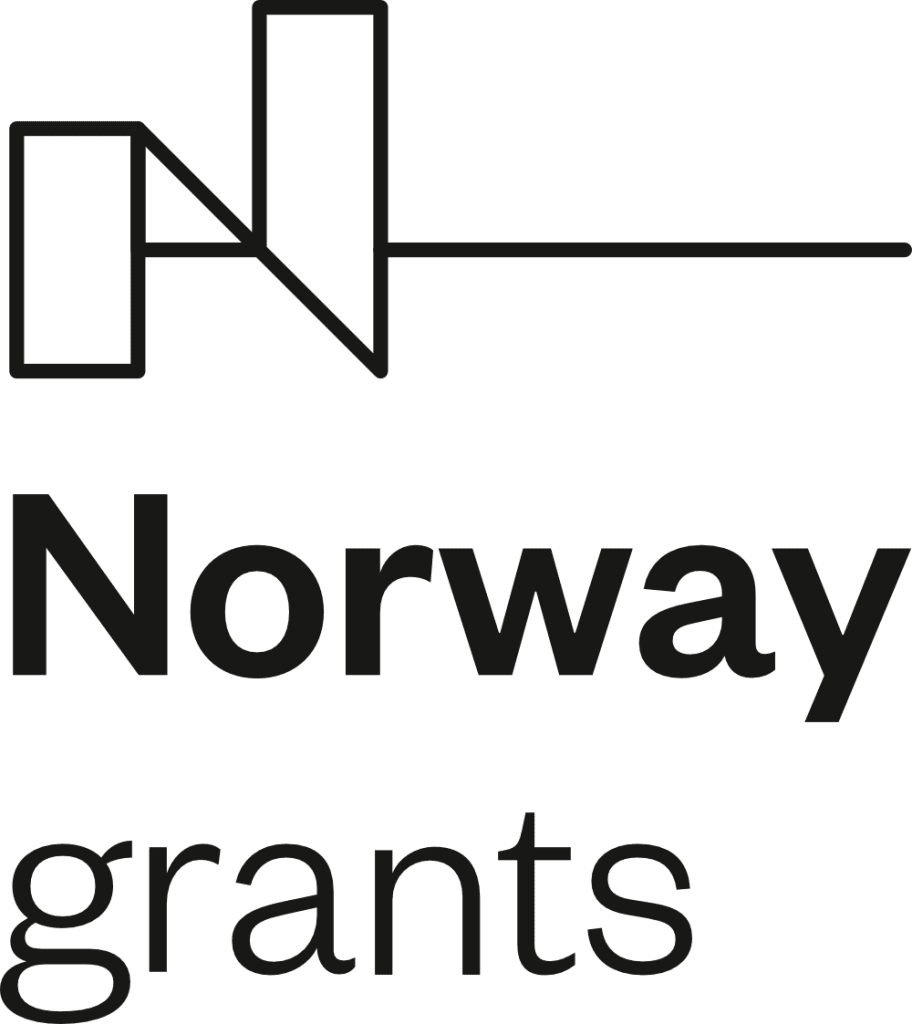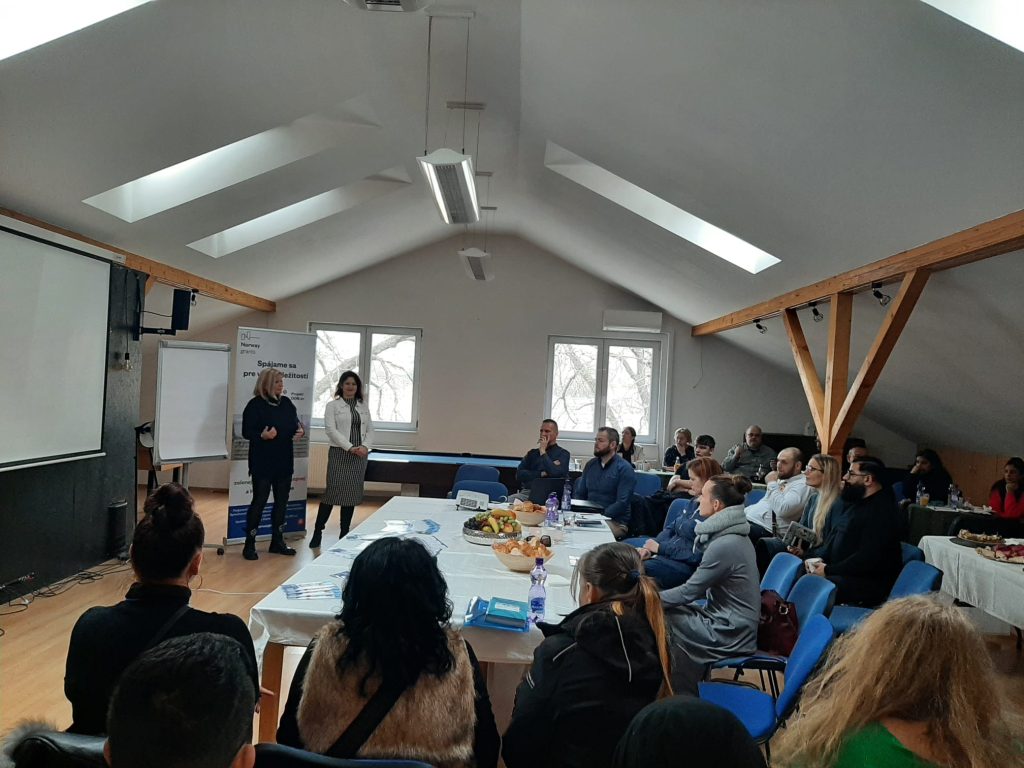In the project “We connect for more opportunities” LDI02014, the benefits from a 749 105 € grant from Norway through the Norway Grants. The project has been co-financed from the State Budget of the Slovak Republic in the amount of 112 365€, the City of Lučenec together with partners BBSK Employment Agency, Project DOM.ov and Norwegian partner CBNRM Networking is trying to bring an innovative and comprehensive approach to the inclusion of marginalized Roma communities.
On February 23, 2023, experts and representatives of local Roma communities, not only from the Lučenec district, met at the Information Seminar within the framework of this project. Together with the partners of the project, as well as with mayors from the surrounding area, they could discuss other possibilities that the project brings in the field of education, employment, prevention of discrimination, but also in the unique possibility of self-help construction. The project covers the activities of the municipality and the activities of non-profit organizations, the aim of which is to motivate marginalized Roma communities to participate in improving the quality of their lives.
Thanks to the project, not only pupils, but also their parents from designated communities gained access to computers at primary schools in the city of Lučenec, which they actively use. The Community Center and its services are expanding at the Rapovská intersection, including children’s elements on the playground and a gazebo for community outdoor activities. Because here too it is important to improve public space. At the same time, thanks to the project, clients can improve their financial literacy and the skills needed to effectively look for work, apply and stay employed. An innovative approach in the form of self-help construction will make it possible to acquire housing on your own. It is an element that, unlike rental housing, which does not allow the principle of merit to be taken into account to a higher degree, brings a unique opportunity to join forces and the community. The result can be a change that affects the marginalized Roma communities, the future of their children, who can grow up in better social conditions, but also the mutual perception of the minority and the majority.


